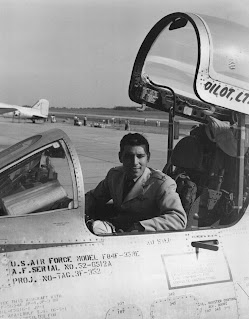I've gotten Ancestry DNA tests for myself, my parents, and my husband. If you've been tested or you're thinking about it, expect to do some work.
The DNA match results will clearly show who is your parent, child, or close cousin. If you don't know your biological parents or close cousins, this may be big news for you.
But if your DNA matches are labelled as possible 3rd or 4th cousins, or 6th to 8th cousins, it's your job to find the relationship.
Your match may have posted their family tree. If so, you may recognize a 3rd or 4th cousin by the names in their tree.
If they haven't posted a family tree, you can write to them to ask about the relationship. Give them a link to your tree, or mention some of your surnames and places of origin.
Recently a woman contacted me, saying her mother's DNA was a match to my mother's DNA. After two messages back and forth, we realized exactly who each other was. But we'd never met. Now we have met, and we brought together our mothers for a third cousins' reunion.
Yesterday another woman contacted me saying her father-in-law is a distant DNA match to my father. We traded several emails trying to figure out exactly which Iamarino ancestor the two men share.
But she and I must do the legwork to figure it out. We realized our two trees may have a mistake because of an error in an Italian vital record we've both seen. We're each trying to make the correct Pietro Iamarino fit firmly into our tree. Hopefully we'll figure out the facts and find that exact shared ancestor.
An even more exciting DNA task lies ahead of me. Gedmatch.com analyzed my DNA and told me my parents are related! Sure enough, Ancestry DNA says they are 4th to 6th cousins. That means they share a set of 3rd to 5th great grandparents.
I've made great progress on my parents' family histories, but I haven't found that link. I wasn't looking for it before! Matching up their 3rd to 5th great grandparents seems within my reach.
My parent's ancestors came from 4 neighboring towns in a province of Southern Italy. My research shows a lot of marriages connecting these towns. The idea that one of his ancestors and one of her ancestors married is not the least bit surprising.
Finding your DNA match is a pretty reliable lead, but still a lead. Don't expect the connection to be handed to you. It's up to you to follow the lead and find a new set of relatives for your family tree.





